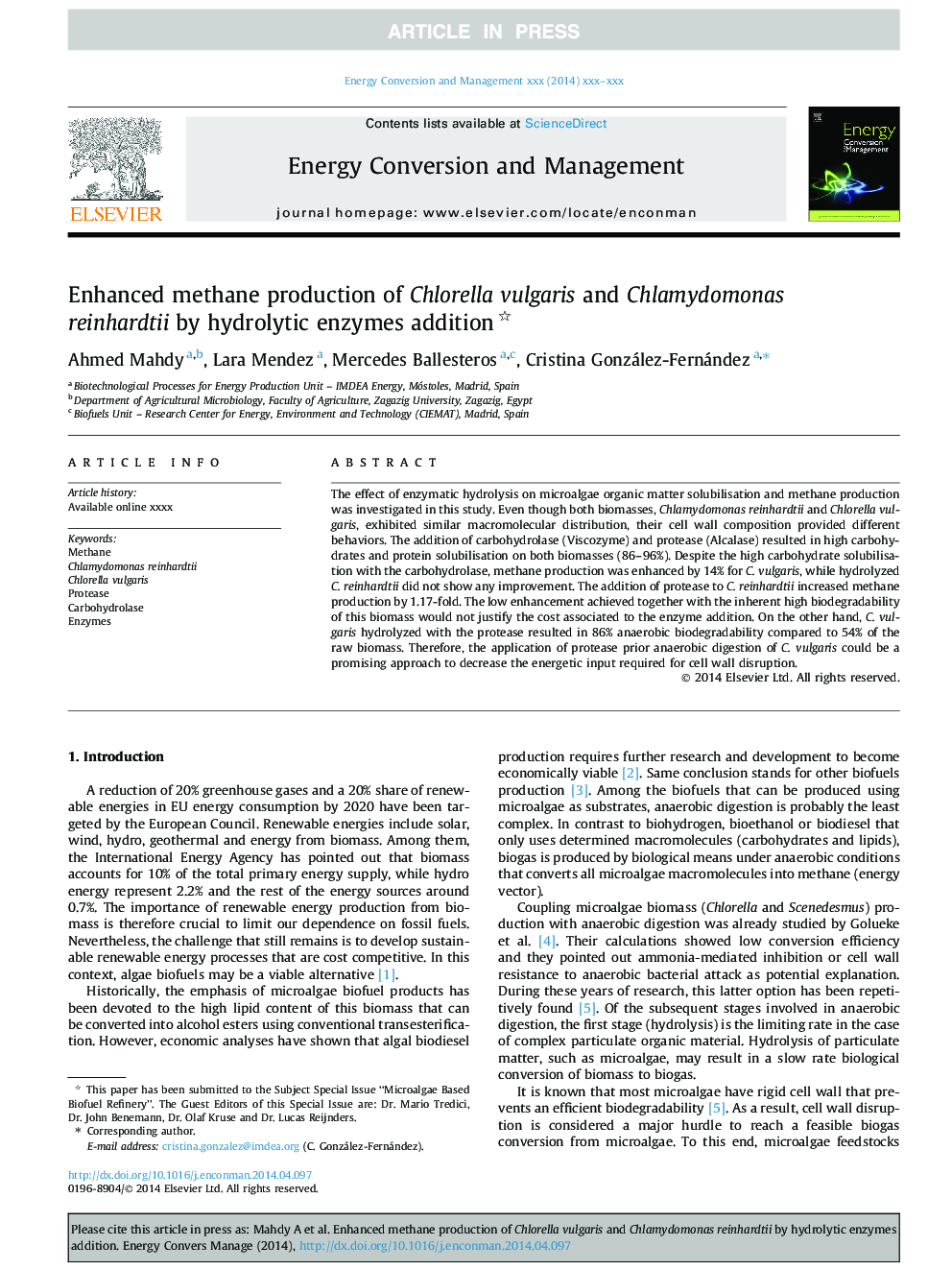| Article ID | Journal | Published Year | Pages | File Type |
|---|---|---|---|---|
| 7164821 | Energy Conversion and Management | 2014 | 7 Pages |
Abstract
The effect of enzymatic hydrolysis on microalgae organic matter solubilisation and methane production was investigated in this study. Even though both biomasses, Chlamydomonas reinhardtii and Chlorella vulgaris, exhibited similar macromolecular distribution, their cell wall composition provided different behaviors. The addition of carbohydrolase (Viscozyme) and protease (Alcalase) resulted in high carbohydrates and protein solubilisation on both biomasses (86-96%). Despite the high carbohydrate solubilisation with the carbohydrolase, methane production was enhanced by 14% for C. vulgaris, while hydrolyzed C. reinhardtii did not show any improvement. The addition of protease to C. reinhardtii increased methane production by 1.17-fold. The low enhancement achieved together with the inherent high biodegradability of this biomass would not justify the cost associated to the enzyme addition. On the other hand, C. vulgaris hydrolyzed with the protease resulted in 86% anaerobic biodegradability compared to 54% of the raw biomass. Therefore, the application of protease prior anaerobic digestion of C. vulgaris could be a promising approach to decrease the energetic input required for cell wall disruption.
Related Topics
Physical Sciences and Engineering
Energy
Energy (General)
Authors
Ahmed Mahdy, Lara Mendez, Mercedes Ballesteros, Cristina González-Fernández,
